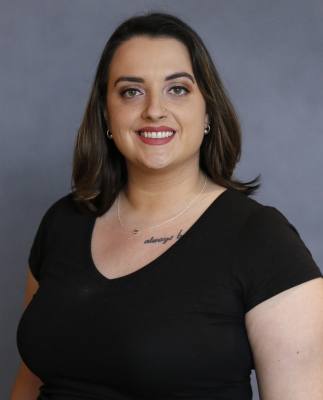A Clear Lake resident and current graduate student at University of Houston-Clear Lake is responsible for the creation of the college’s first African Student Association, according to a Feb. 24 media release from UHCL.
Adebisi Bashorun came to the Bay Area from Lagos, Nigeria, for her master’s degree. She wanted to foster a sense of community for other like-minded African and African American students and ease some of the challenges that come with transitioning to American college life, she said in the release. Her vision was for an organization where African students can feel “as one with the others,” she said.
“When I got here, there were a number of organizations on campus that made me feel welcome, but I didn’t meet anyone like me—an international black student with a craving for a feeling of community,” Bashorun said in the release.
Bashorun decided to create a community of her own where African and African American students could partake in activities of common interest. The ASA, which started in 2019, has held events including an Afro Zumba class and a panel discussion of black professionals in STEM-related fields over the last year. The organization also has biweekly meetings where members talk about issues relating to them as Africans in America and provide member support, Bashoroun said in the release.
The ASA currently comprises 29 members, some of whom are African American and others who come from Uganda, Cameroon, Nigeria and Ghana, she said in the release. The ASA is separate from the Black Student Association but plans to collaborate, per the release.
Lecturer in Criminology Comeka Anderson Diaz, ASA’s faculty adviser, said in the release she chose to take on the role after encountering ASA members at last year’s Student Organization Fair and discovering how much she has in common with them. Students can gain a lot from being in the ASA, especially the chance to exchange ideas and find more than one way to solve a problem, she added.
UHCL officials said in the release that the emerging student organization’s goals align with the college’s efforts to connect African students to new educational opportunities. The Office of Education Abroad and Scholar Services sponsored the ASA’s panel event and had a table there that highlighted work and study opportunities available in Africa, specifically those in the STEM field, said Bianca Schonberg, UHCL’s executive director of education abroad and scholar services, in the release.
Students interested in the oil and gas industry can find many opportunities in Nigeria and Angola, and U.S. State Department funding is available for American students to study in Africa, Schonberg added. Students interested in environmental sciences, for example, can study or find internships in countries such as Ethiopia, Uganda or South Africa.
Schonberg has a database filled with partner providers who can help find a program almost anywhere in the world, she said.
“We’re continuing to work on a very active outreach toward Africa,” Schonberg said in the release. “Because of the strong oil and gas connection we share, we are building upon that with embassies and the community when we bring African students here.”
Johna McClendon, UHCL’s director of international admissions and student services, said that UHCL is leveraging its existing relationship with the United States International University-Africa in Nairobi, Kenya, which is an accredited school in the U.S., to promote further opportunities for both USIU-Africa and UHCL students. Her office also works closely with the Office of Student Diversity, Equity and Inclusion to connect students with international programming when they arrive in the U.S., she said.
The ASA aims to provide warmth, comfort and familiarity to African students, adviser Anderson Diaz said.
“It helps your spirit when you interact with people who are similar, and it takes away a little of the homesickness,” she said in the release. “It gives students a way to find a place in a bigger community.”
Bashorun said in the release that international students and parents alike are grateful for the ASA’s existence.
“This is for any African who’s looking for a place to feel ‘among,’” she said.





